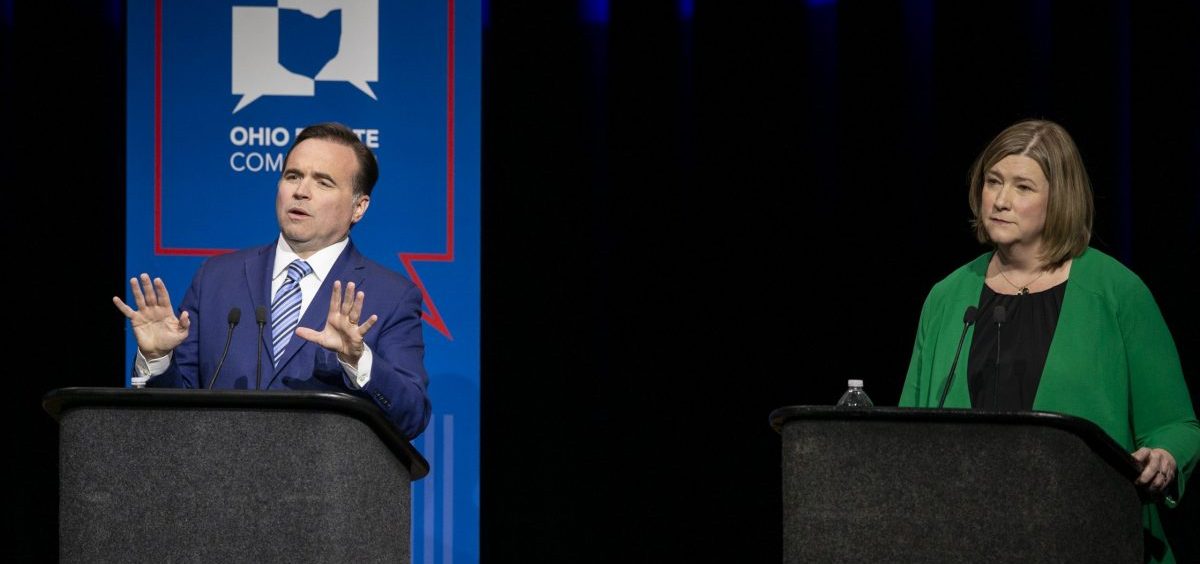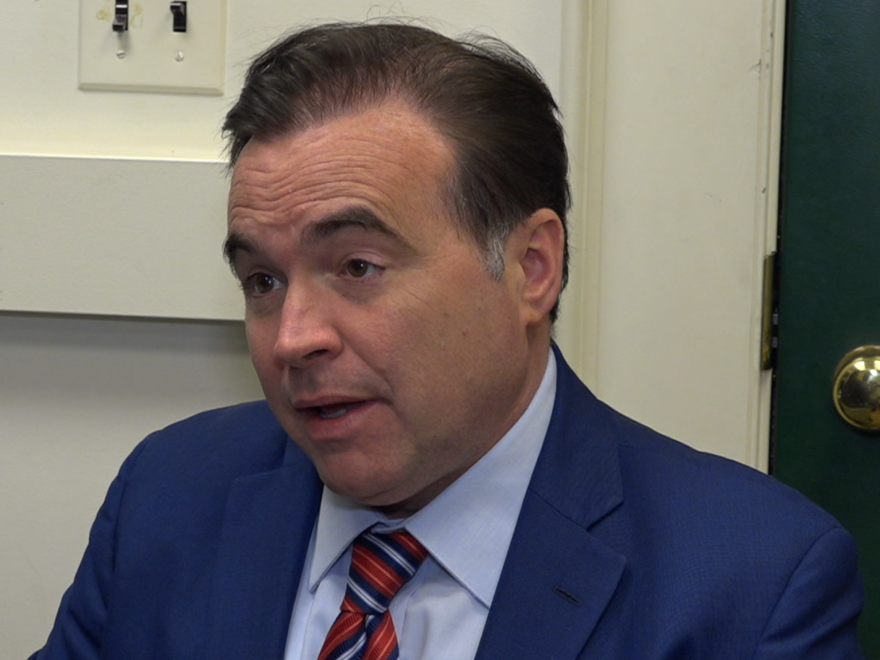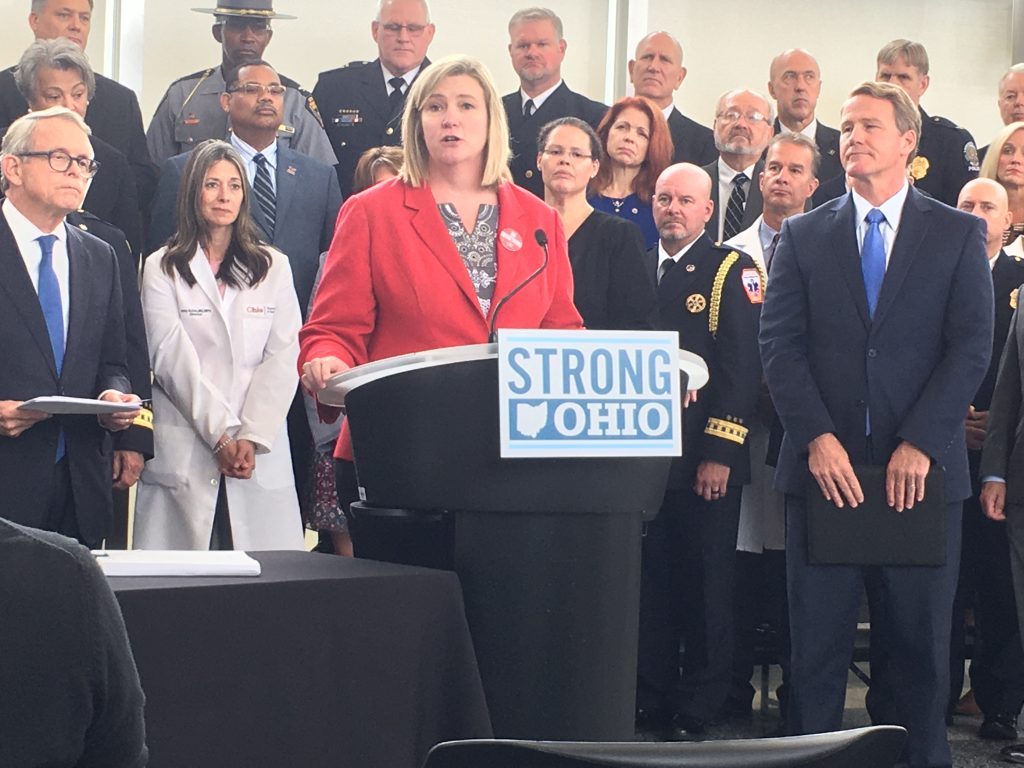News

Democrats running for Ohio governor pitch their approach to pressing issues
By: Jo Ingles | Statehouse News Bureau
Posted on:
COLUMBUS, Ohio (Statehouse News Bureau) — When Democrats in Ohio cast their primary ballots for governor in this May 3 election, they’ll have to choose between two southwest Ohio former mayors.
Nan Whaley, the former mayor of Dayton, is facing off against John Cranley, the former mayor of Cincinnati.
The candidates were once colleagues as the mayors of two large Ohio cities. Both were part of the Ohio Mayors Alliance and have called on the state to give cities more funding from state tax revenue. The two offer different strategies on how they would lead Ohio as governor.
Plans for Ohio’s economy
Cranley’s first campaign ad hit on a point that has become his mantra.
“While Ohio has declined, Cincinnati has made a comeback, the first major Ohio city to grow again after decades of decline,” Cranley said in the ad.
Whaley has touted her work in Dayton as the city dealt with one of the highest opioid death rates in the country as well as a tornado that tore through several communities. She said her economic plan will turn Ohio around.
“I believe Ohio deserves better. I will make sure your pay goes up, your bills go down and you will finally have a state government that is working for you,” Whaley said.
Cranley also promised to create 30,000 broadband and clean energy jobs that pay a minimum of $60,000 a year by legalizing marijuana. He proposed giving Ohio families earning $75,000 a year or less a $500 yearly dividend, paid for by increasing the severance tax on oil and gas drilling.

“When it comes to economic growth and growth in general, my record is better than Mike DeWine. Over his career, the average wage in Ohio has gone down. The average wage in my city has gone up. Poverty has gone down one and a half times faster than the state of Ohio and we grew twice as fast as the state,” Cranley said.
Cranley said he’s sure his plans will work for Ohio as he made a promise at the end of his campaign ad, “We are not going to insult you with platitudes and false promises. Our plans will lead to real results. If we don’t get it done in my first term, I won’t run again.”
On the campaign trail, Whaley touted her middle-class roots. Like Cranley, she said she wants to raise Ohio’s minimum wage to $15 an hour, but she has fewer specific proposals.
She said wealthy political donors have been able to get what they want by holding Ohio workers back and creating a revolving door effect that puts their cronies in key state positions.
“You can work for the government or you can work for corporations but you can’t work for both,” Whaley said.

“I think being pro-worker is being pro-business actually. What I hear over and over again from businesses is they can’t find a strong enough workforce. And I think a lot of that has to do with one; making sure that we invest in our workers from the very young age, and two, that we pay them well,” Whaley said.
Both Whaley and Cranley said they know they will need to work with a Republican dominated legislature that’s been resistant to Democratic proposals to get their agendas accomplished if elected. And both point to situations where they have been able to do that in their own communities.
From public safety to criminal justice reform
Whaley and Cranley both said they want to the reform criminal justice system in Ohio. But they have different ideas on how that reform should happen.
Two days after the 2019 mass shooting in Dayton that left nine dead and 17 injured, then Mayor Whaley stood with Gov. Mike DeWine, a Republican, on a stage to address a crowd that shouted “Do Something.”
“You know he told the people of Dayton back in August of 2019 that he would do something around common sense gun legislation and frankly never in my worst nightmare did I think he would do something to make it worse,” Whaley said.

Some, including police agencies, think those changes will actually increase crimes committed with guns and make Ohio’s streets less safe. Whaley said, as governor, she’d push for universal background checks and would crack down on existing gun laws the way they have in Dayton.
“In Dayton, this past year, we saw a drop in homicides by 36%. We also took 1,100 illegal guns off the street and we know that when we have illegal guns off the street, our communities are more safe,” Whaley said.
In a 2019 editorial, Cranley said local efforts to keep cities safe are being stymied by Ohio lawmakers who ban cities from enacting laws, like the one in Cincinnati that prohibited bump stocks – a device that allows a semiautomatic rifle to fire faster. That law was overturned in court.
Cranley was one of the co-founders of The Ohio Innocence Project, an organization that has exonerated and freed nearly two dozen wrongfully convicted people. The way he sees it, the current criminal justice system has a lot of problems.
“I’ve seen criminal justice abuse people, innocent people who I have helped to free,” Cranley said.
Approaches to legalizing marijuana
Cranley said the most important thing Ohio can do to reform criminal justice is to legalize marijuana.
“Too many people are losing careers, opportunities because of a conviction over the use of marijuana. And that’s a clear choice in this election. Mike DeWine thinks it should be a crime and I think it should be a business,” Cranley said.
Cranley said his plan would bring in $350 million in new taxes.
Cranley said numerous studies back up his numbers but Whaley and others question that data. Whaley said she also favored legalizing marijuana but if that happened, she would want to make sure Black Ohioans — who she says have been disproportionately impacted by marijuana arrests — can take advantage of those business opportunities.
Candidates on law enforcement
One thing both Whaley and Cranley agree upon is they won’t get rid of qualified immunity. That’s the protection afforded to police officers who pursue actions in the line of duty against lawsuits by people whose constitutional rights are interrupted in the process.
“Most police officers I know would not serve if they were not given the protection of qualified immunity. We’ve seen a record increase in homicides and shootings. We need more cops not less. Now, don’t get me wrong. Cincinnati has been the leader on police community reform. Ours was the first city in Ohio to get body cameras on my cops. I helped write the citizen review committee 20 years ago. I wrote a report for the U.S. Conference of Mayors on police reform. So there are plenty of ways we can reform policing in this state and frankly it is to follow the Cincinnati lead. I believe that reforming police community relations is the most important reason Cincinnati is making a comeback because we made progress on racial justice,” Cranley said.
Whaley agreed the goal is good police-community relations, not eliminating qualified immunity.
“I would not get rid of qualified immunity. As a mayor, I know that would bankrupt cities and we know that across the state. We need to make sure our cities are funded. And frankly it would also affect our ability to recruit really good police officers which we also need to do. I’m proud as mayor of Dayton that we increased the number of officers. We need to make sure they are of quality and if we get rid of qualified immunity, you would see less people being willing to be a police officer. At the same time, we need to make sure, while we are increasing the number of police officers, that anybody who has an interaction with a police officer is treated with dignity and respect and as mayor you can really hold those ideas both in your hands at the same time,” Whaley said.
Both Whaley and Cranley said they’d restore money to local government funds so cities would have more resources to hire more high-quality safety forces.
9(MDU1ODUxOTA3MDE2MDQwNjY2NjEyM2Q3ZA000))

